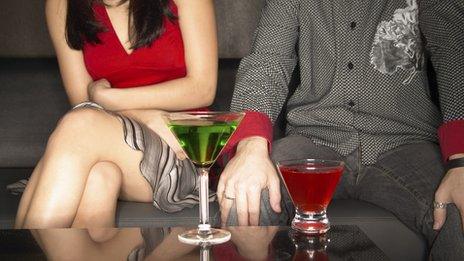My fear of dating as someone with dwarfism
- Published
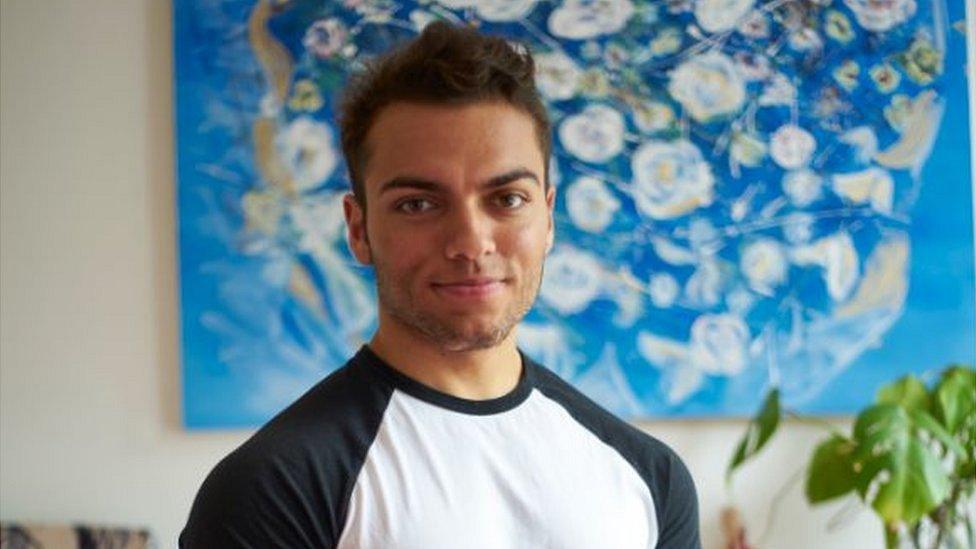
Athlete and law student Pani Mamuneas has never had a girlfriend and says he suspects the only women who approach him want to tick "dwarf" off their bucket list. The 19-year-old decided to do something about it and applied for a TV dating show.
You always hear girls say 'ooh what's your type? Oh tall, you know tall and handsome' and I'm the total opposite of that.
At 4ft 7in people have always asked me 'would you have wanted to be born taller?' But now, I can't imagine life any other way.
When I was younger I never saw myself as having a disability. I wasn't even aware of it until my teenage years when growth spurts happened to others and I started to see that I was different and school became very difficult.
My fellow students at school in Leicester would ask 'Pani why are you so small? Were you born the size of a pea?' Thinking back, all those things that hurt me could have easily been avoided by realising people were just curious - they were kids asking silly questions.
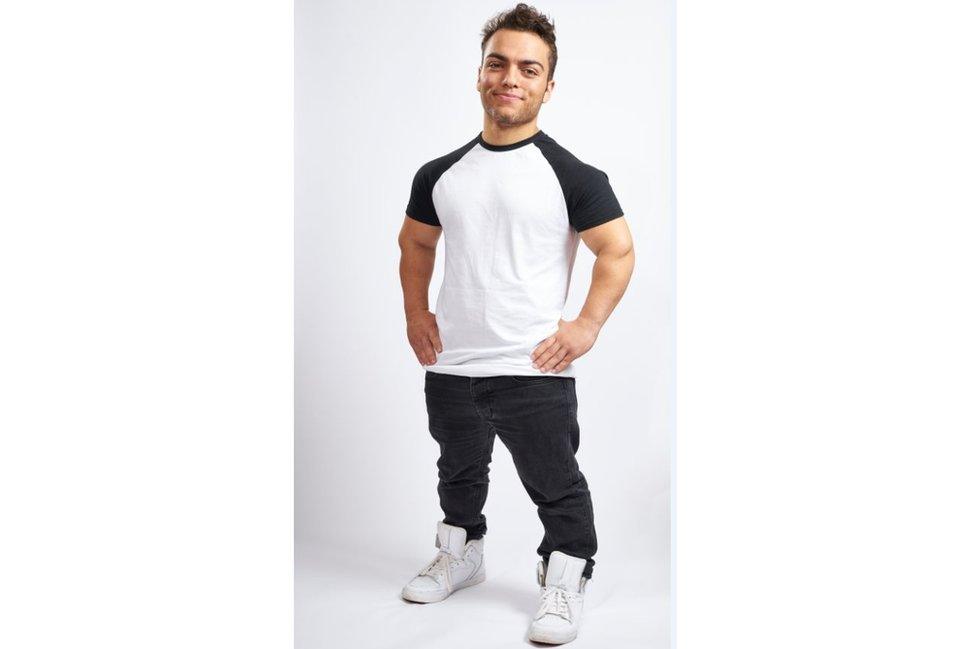
I have what's known as Achondroplasia - a form of dwarfism. Apparently I'm taller than average for my condition but still quite tiny and it definitely affected potential relationships and how I have viewed myself over the years.
My male friends and I would always talk about girls and celebrities, the ones we would dream of marrying and how we would ask them out. But this is when things went very wrong for me.
At the age of 12 I asked a girl out. We went to the cinema and seemed to have a good time, but the next day the gossip began.
I secretly told a friend in the school library that I liked her but he wrote it in big letters on the whiteboard for everyone to see - when I saw it I wanted to disappear from the face of the earth.
Myself and the girl both ended up in tears and she felt too embarrassed to talk to me again.
That was when I lost all of my confidence and thought I was not good enough because of my height.
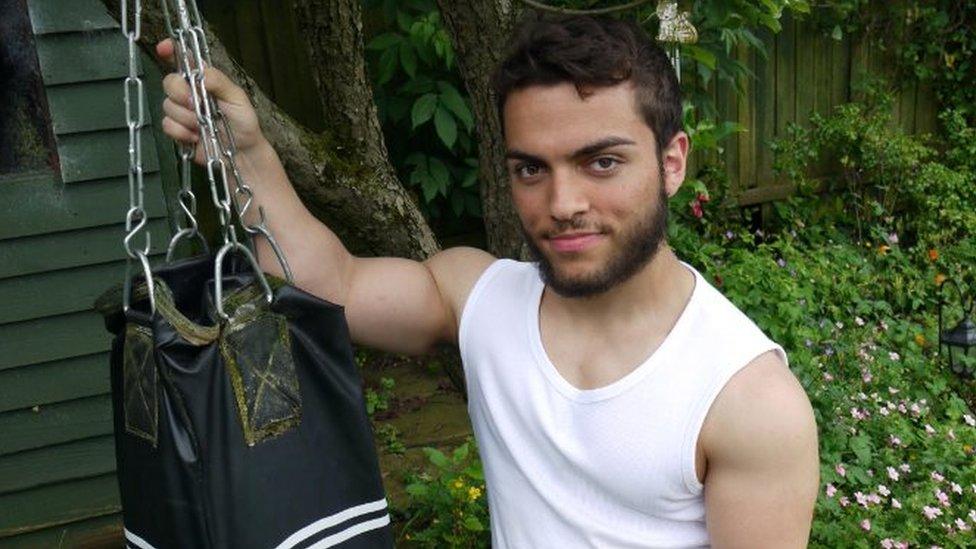
I stopped talking to girls and I certainly wouldn't reveal if I fancied someone.
I was afraid of what girls would think of me, always worrying they might ignore or tease me, or treat me like a nobody, because I was different.
It was a very difficult time of my life.
When I reached college, however, things started to look up. Everyone seemed to have matured and the general bullying stopped. It became a time for me to discover who I was, and what I wanted to do with my future.
Sadly, this new way of thinking didn't mean my love life improved and I had other challenges to overcome including going to nightclubs with friends.
I wouldn't have the confidence to go up to girls, chat to them or ask them to dance. I always felt that because I was different if a woman approached me it was so she could tick it off her bucket list.
It was at this point, having never had a girlfriend, I decided to contact Channel 4's The Undateables - a reality show which tries to match disabled people with a partner - and so face my fear of dating with the hope of potentially finding somebody.
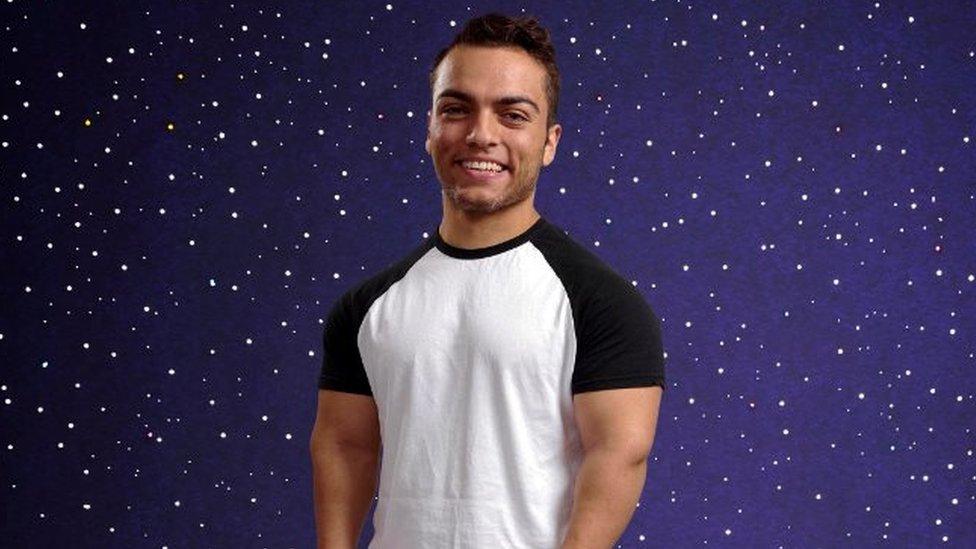
It was a drastic thing to do but I thought if I could successfully go on a date on a television show I wouldn't have any confidence problems in the future.
Facing my fears worked and I now feel able to approach a woman and have a conversation with her because I have learned there isn't anything to be afraid of. If the girl doesn't like me fair enough, but some open-minded people will like me.
I had been competing internationally in shot put and javelin and hoped to compete in the Paralympic Games in Rio last year but injury forced me to take time out.
Participating in The Undateables helped me to focus on a different aspect of life and took my mind off the injury although I've now returned to training with my sights set on the 2020 Paralympics in Tokyo as well as taking a degree in law.
This process has further boosted my confidence and I've realised that being short isn't a barrier it's a feature. All this time I shouldn't have thought of myself as less of a person.
Being me is the best thing I can do better than anyone else.
The Undateables, external transmits on Monday nights at 21:00 GMT on Channel 4 and is also available on All 4.
Produced by Beth Rose
For more Disability News, follow on Twitter, external and Facebook, external, and subscribe to the weekly podcast.
Related topics
- Published13 February 2015
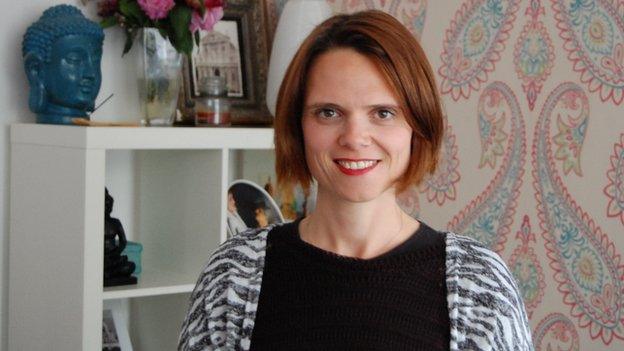
- Published7 January 2016
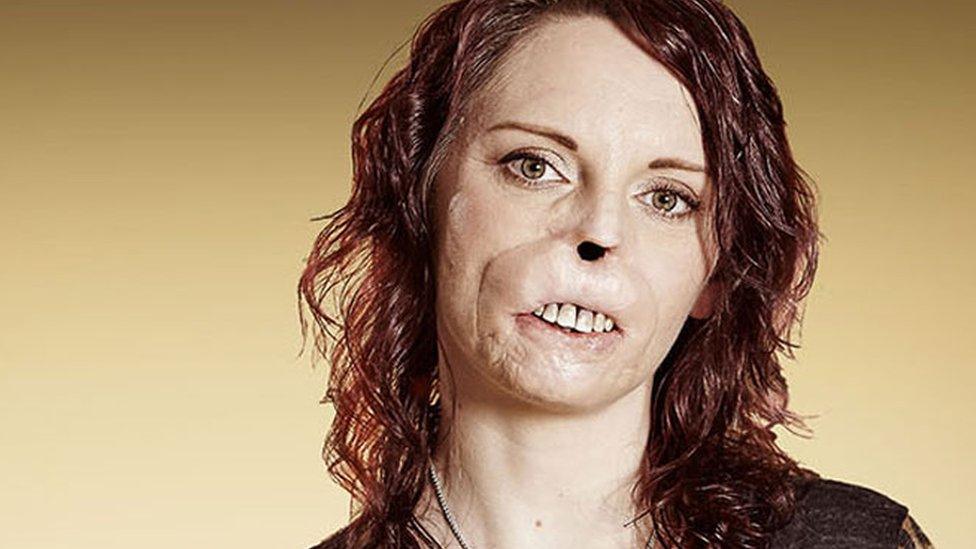
- Published3 April 2012
